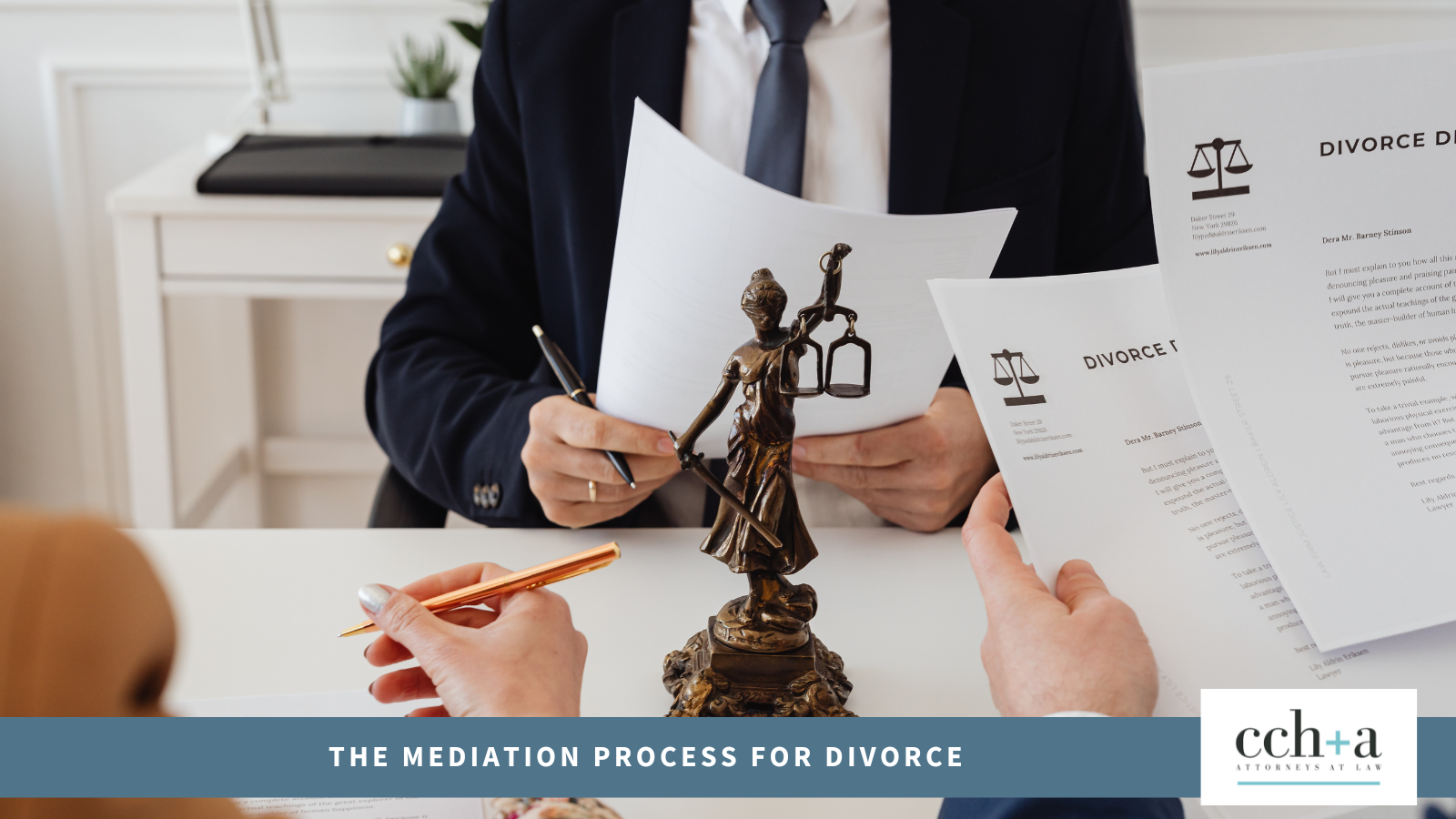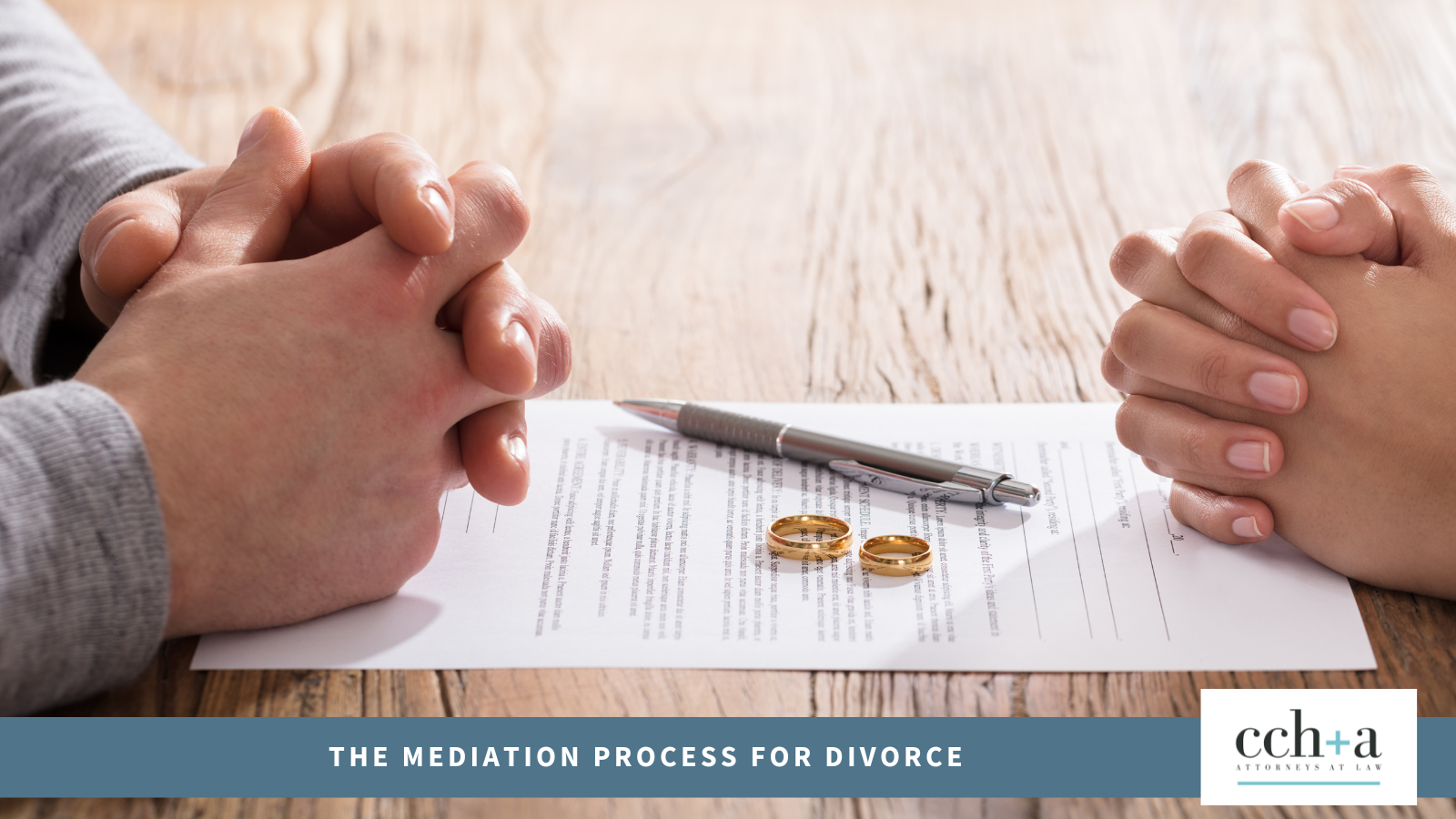The Mediation Process for Divorce: What It Is and Why It’s Important

Author: Emily J. Schmale
POST DATE: 11.14.23

Families experiencing a divorce, especially those with children, are still families, and their interactions and conflict-resolution techniques considerably influence every member’s well-being. A divorce can present financial, social, and personal challenges. However, many of these hurdles stem from lengthy and adversarial divorce litigation. Mediation is a more pragmatic approach, where couples can end their marriages without significant hostility.
While mediation may be an alternative to court, the process still requires a comprehensive understanding of Indiana’s divorce laws. Mediation is typically a required step in the divorce process, rather than a stand-alone event. Facts and legal arguments should be developed prior to mediation, and the agreements that stem from a successful mediation must meet the state’s legal requirements on custody, visitation, spousal support, and property division. An experienced attorney at Church Church Hittle + Antrim can represent individuals before, during, and after the divorce mediation process. Contact CCH+A at 317-773-2190 to learn what to expect in mediation for divorce.
What Is Divorce Mediation?
At its core, family or divorce mediation is a process where a mediator—i.e., an impartial third party with no decision-making power—facilitates negotiations between divorcing parties. The mediator’s goal is to help the parties compromise and reach a mutually satisfactory settlement agreement. Mediation allows for flexibility in tailoring an agreement to recognize the needs and rights of all family members affected by the divorce.
How Does Mediation Work?
While most people have a general idea of what happens during a trial, mediation and other alternative dispute resolution (ADR) methods are less well known.
During the process, mediators use specific techniques and strategies to address the needs and goals of each party. These techniques include the following:
Empathic listening,
Power-balancing,
Reframing,
Refocusing,
Summarizing,
Prioritizing, and
Reality testing.
Mediators and each party’s attorney work together to address and resolve issues with the least amount of contention and hostility.

The Mediation Process for Divorce
In Indiana, parties can agree to mediate and select a mediator, or they may be court ordered to mediate with a list of potential mediators provided by the court. Once a mediator is established by agreement or order, they will schedule a time and location for the mediation. A party often works with their attorney to draft a written statement for the mediator. This written statement should inform the mediator about the case and the party’s unique position. These statements, and other supporting documentation provided to the mediator, are confidential.
Mediations can occur at a courthouse, law office, or a private mediation center. Divorce mediation sessions should take place at a facility with enough rooms for attorneys to meet privately with their respective clients. Each party will then have a secure space with their counsel, and the mediator will move back and forth between those rooms. Normally, at the outset, each party and their counsel will meet with the mediator, who provides information about the process. It is exceedingly uncommon that the parties to a divorce mediation all meet in a joint session. Rather, during the mediation session, the following typically occurs:
Prior to the mediation, the parties execute an agreement to mediate, which commits each person to act in good faith throughout the mediation;
The mediator may visit both rooms for the attorney to give a brief opening statement;
The mediator will go back and forth to communicate with each party and discuss offers. The mediator may step out at any time a party and their attorney need time and privacy to discuss an offer. The mediator will then communicate only the approved offer or information to the other room; and
If the parties reach an agreement, the mediator and attorneys will write up a mediated settlement agreement outlining the terms for each party to sign.
The terms of an agreement will be incorporated into a complete formal settlement agreement. However, if the parties do not agree on any or all of their issues, they will continue litigating their divorce in court. It is important to note that all mediation discussions are confidential, regardless of the outcome. The parties are not bound by any statements or representations other than those in the formal agreement.
How Long Does Divorce Mediation Take?
In most cases, mediation sessions take up to one day. However, particularly complex cases may require additional sessions.

What to Expect in Mediation for Divorce
Studies have shown that relative to litigation, mediation has helped couples reach fair settlements, enhance satisfaction, and positively impact some aspects of postdivorce parenting and co-parenting. In addition, divorce mediation has the following benefits:
It increases self-determination and allows divorcing parties greater control over the consequences of their divorce;
It is a private and informal process that allows input from each party;
It is a flexible process;
It is future-oriented and focuses on establishing a working relationship; and
It promotes the best interests of the child.
However, it is essential to note that there are certain situations where mediation may not be appropriate. Individuals should consult with an attorney to determine the most efficient, safe, and practical way to secure a divorce.
Are You Interested in Learning More About What to Expect in Mediation for Divorce?
If a divorce is on the horizon, and you think that mediation may be a good option for you, reach out to the dedicated Indiana divorce lawyers at Church Church Hittle + Antrim to schedule a consultation. At CCHA Law, we have more than 130 years of combined experience handling all types of divorce and family law issues, including divorce mediation. We’ve helped countless clients work through the often difficult process of divorce, simplifying the process and reducing the chance of ending up in a heated legal battle. To learn more about divorce mediation, give CCHA Law a call at 317-773-2190. You can also reach us through our secure online contact form.